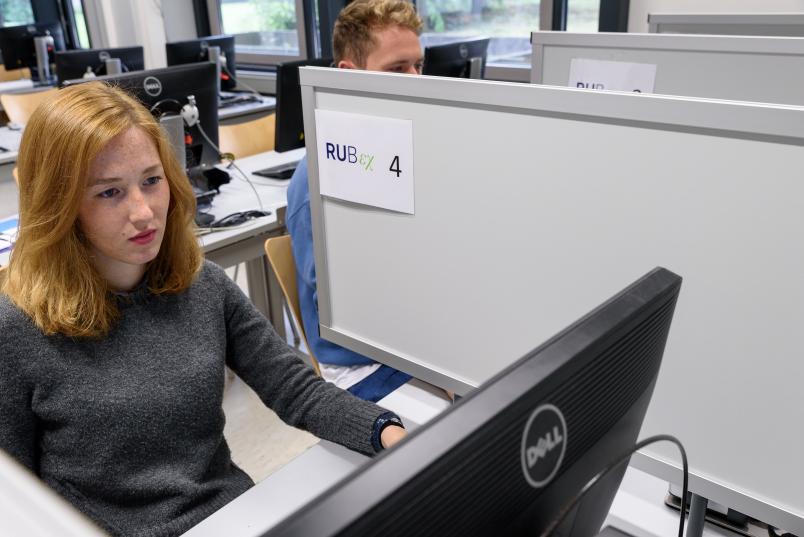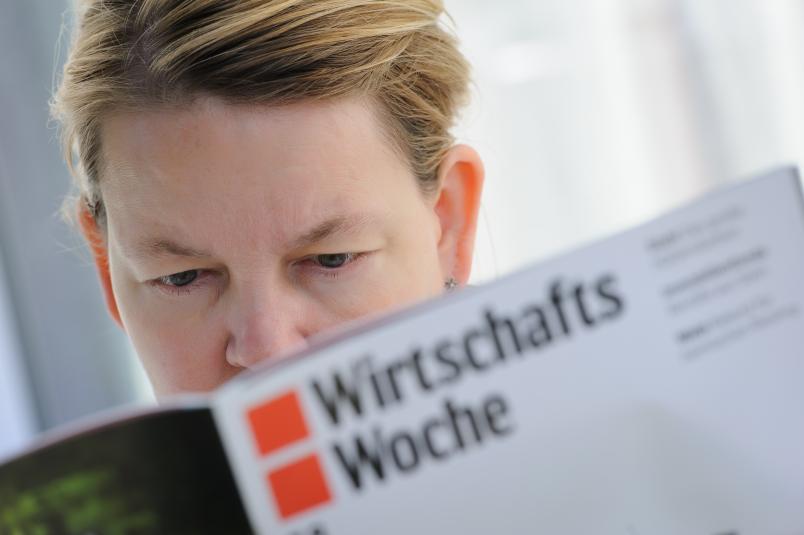Economics
Why we should have a better grasp of money
People who know nothing of interest calculations & Co. rely on friendly advice in financial matters. But is that wise?
Shares or saving bonds? Building loan contract or Riester pension? A cheque account with Direktbank or with Sparkasse? Whenever we deal with money matters, we have to make numerous decisions. Ideally, the good ones help us multiply our funds, while the bad ones lose us our savings, in the worst-case scenario.
The problem: many of us do not come equipped with the theoretical tools necessary for weighing the pros and cons of different financial products against each other. Studies have demonstrated that only approximately fifty per cent of all Germans are able to answer three questions pertaining to fundamental financial concepts correctly.
Financial literacy
Moreover, the world of finance uses many technical terms that not everybody understands. But if a person doesn’t know how a product works – how can they decide which one to pick from among the many that are on offer?
The most common approach: getting additional information. This may include definitions of terminology, as well as test reports, consulting a financial advisor or getting advice from a friend.
Julia Sprenger, PhD student at the Institute of Macroeconomics, has analysed in what way the knowledge of financial matters determines the behaviour of people who are about to make a financial decision. More specifically: if and what kind of information they procure. Furthermore, she wanted to ascertain how that external information affects the decision-making process.
A crucial term in her area of operation is financial literacy. Economists use it to describe general financial knowledge and at the same time the competency necessary to apply that knowledge.

Sprenger considered the problem from the point of view of behavioural economics. Here, insights gained in the fields of psychology and economics complement each other.
Unlike in models which assume that people act in a purely rational manner and are able to process an unlimited volume of information, the 31-year-old researcher looked at real-life conditions: how do people, in her case study participants, actually proceed if they have to choose between various financial products?
To this end, Sprenger has developed a number of experiments. In the first step, the participants had to estimate how much they know about financial matters. Subsequently, they underwent a financial-literacy test in order to verify if their feeling was right.
Then, they had to pick one of several financial products. Those products might include, for example, a loan or investment; the respective options differed in terms of conditions and services.
One product fulfilled the requirements most accurately
The participants were unable to determine straightaway which of the products met their stipulated decision criteria. First, they had to understand the relevant product information. Sometimes, it was necessary to calculate interests to compare the products; in other instances, technical terminology such as annual percentage rate cropped up. Some pieces of information were irrelevant for the decision and were included to distract from the important facts.
Just like in real life, the participants had the option to ask for assistance if they thought that they needed more information to make a decision. Different kinds of information were available in different experiments.
Factual information, for example, included definitions of technical terms. Expert advice was advice provided by a participant who had passed the financial-literacy test without any mistakes; it corresponded more or less to the advice provided by a financial consultant in real life.
The third option was informal advice. That was provided by people who rated their financial literacy as excellent but whose score in the financial literacy test was not known. In real life, this group would include friends or relatives on whose experience a person might rely.
Purchasing information
Additional information always had to be purchased, with expert advice being the most expensive and the definition of technical terms the cheapest.
The respective sum was deducted from the remuneration the participants received for the study. That, too, was done in order to reflect reality, because in the real world the consequence of good decisions is more money in the bank – as opposed to the consequences of poor decisions.

Not even economics students were able to answer all questions pertaining to the calculation of interest correctly.
Julia Sprenger
The results of her study surprised Sprenger in many respects: “First of all, many participants struggled with certain questions of the financial literacy test. Not even economics students were able to answer all questions pertaining to the calculation of interest.”
Moreover, many found it difficult to estimate their knowledge level correctly. “Self-assessment greatly affects a person’s decision how much information they acquire before picking a financial product.”
Those who overestimate themselves don’t acquire information
It emerged that people who overestimated themselves tended not to purchase any additional information. Consequently, they often did not make the best possible decision, even though it would have been easy to make sure they were better informed.
People with poor financial knowledge attempted to compensate for that lack by requiring more information. If, however, the information in the respective experiment consisted merely of terminology definitions and data and the participants weren’t able to purchase individual advice, they soon abandoned that strategy.
“People with the lowest financial-literacy levels invest the least in information,” says Sprenger. Her explanation: “The lower my existing knowledge knowledge base, the more difficult it is for me to dock onto it and add new information.”
Special role of advice
Sprenger found it particularly revealing how advice affected the decision-finding process. If the participants had both options at choice, they rarely purchased informal advice and clearly preferred the expert advice.
They almost always followed the expert’s recommendation, regardless of its quality. This applied for both participants of high and low financial literacy.

It is difficult to ignore such advice once one had read or heard it.
Julia Sprenger
If informal advice was given unsolicited, i.e. if it didn’t have to be specifically purchased, it influenced the decision considerably. Especially people with low financial literacy cut their search for information short. They bought fewer definitions and less expert advice.
“It is difficult to ignore such advice once one had read or heard it,” explains Sprenger. “Unsolicited advice makes us less willing to search for information – even if we wouldn’t have actively acquired this advice.”
It seems that the informed and responsible consumer in the financial market is still a long way away. Therefore, Sprenger supports the demand voiced by the Organisation for Economic Co-operation and Development (OECD) to promote financial education. “Ideally, the subject of money should become part of school curricula,” concludes the economist.




